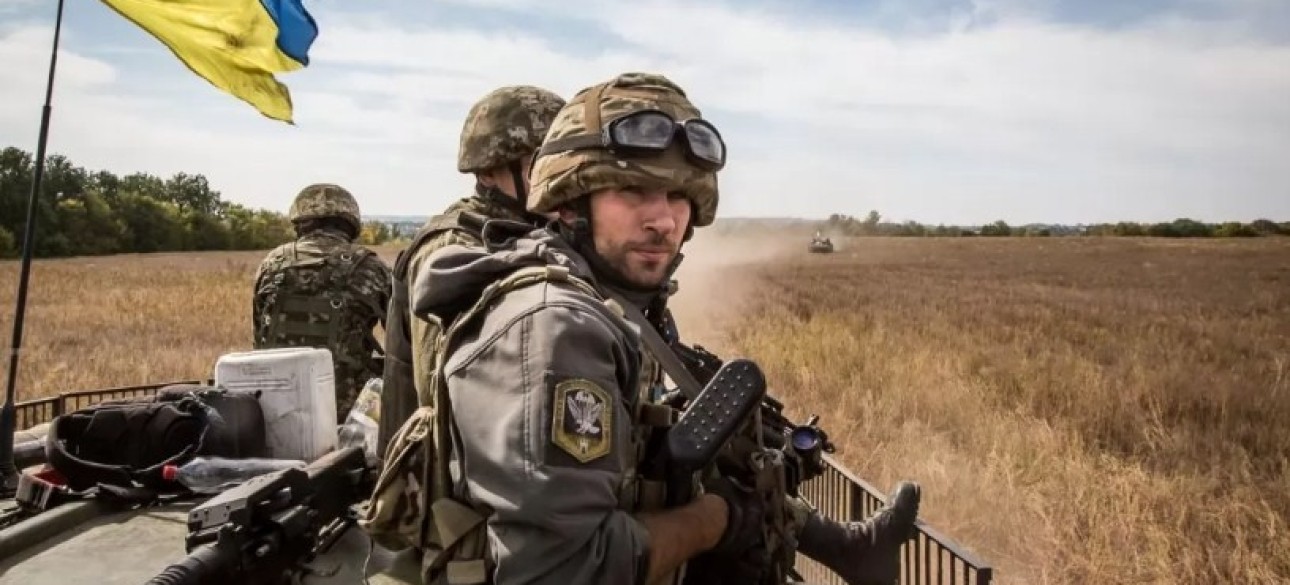Останнім часом знову актуалізувалася тема завершення російсько-української війни. Політолог Володимир Фесенко аналізує наявні версії можливого миру та пояснює, чому зараз пошуки відповіді на це питання навряд чи щось дадуть.

Коли може завершитися російсько-українська війна?
Останнім часом знову актуалізувалася тема завершення російсько-української війни. На цю тему з’являються статті, висловлюються політики, військові та політичні аналітики. Журналісти запитують: коли може завершитися російсько-українська війна?
Однак у сприйнятті теми завершення російсько-української війни і в Україні, а нерідко й на Заході, домінують крайнощі, далекі від реальності.
Минулого року в нас переважали вкрай завищені очікування, що ще трохи, Захід дасть нам танки, і ми звільнимо всі окуповані території, включно з Кримом. І тоді війна сама собою закінчиться нашою перемогою. Це були дуже наївні уявлення про завершення війни.
Зараз таких ілюзій в Україні стало набагато менше. Але віра в диво залишається. Уявлення про те, що війна закінчиться вже в поточному році завдяки прибуттю в Україну військ НАТО, це така собі “побєдєдна маніловщіна”, позбавлена реальних підстав. Ті, хто озвучує такі теорії, нехай почитають Послання Байдена до Конгресу США, в якому президент США прямо сказав, що американські солдати не воюватимуть в Україні. Гучні заяви президента Франції про можливу присутність військ НАТО в Україні поки що не зустріли підтримки у більшості його колег у Північноатлантичному Альянсі. До того ж європейські країни НАТО і організаційно, і ресурсно, і соціально-психологічно поки що не готові до такої війни, яка триває в Україні вже понад два роки. Але головним чинником стримування НАТО від прямої участі у війні проти Росії є ризик ядерної війни. Цей же ризик поки що стримує і Путіна від удару по сусідніх країнах Заходу.
Інша крайність полягає в уявленнях про те, що ще трохи — і Росія переможе в нинішній війні. У цьому дусі написана недавня стаття в Die Welt. Автор цієї статті припускає, що американська військова допомога Україні буде різко скорочена, незалежно від результату виборів, а Європі не вистачає “сил і політичної волі”, щоб самостійно надати необхідну допомогу зброєю. Україна, на його думку, навряд чи зможе утримати фронт, а у Росії достатньо ресурсів і глобальної підтримки, щоб продовжувати війну ще кілька років. Тому закінчення війни може відбутися вже в поточному році шляхом заморожування воєнних дій. Як саме це станеться, автор не уточнює, але, мабуть, припускає, що це відбудеться на умовах Росії. Стаття в Die Welt сильно перебільшує наявні проблеми й екстраполює їх на найближчу перспективу, а ось протилежні тенденції та чинники замовчуються, або ігноруються.
Тема завершення війни через мирні переговори також сприймається через крайнощі, особливо у нас в країні.
Одна крайність — очікування переговорного завершення війни вже зараз. Неважливо, у який спосіб і на яких умовах. Головне, щоб швидше ця війна закінчилася. Прихильники цієї позиції бачать натяк на можливий мир у будь-якій західній публікації на цю тему, у будь-якій заяві на тему миру Путіна або когось із західних лідерів (наприклад, Шольца). У цьому разі бажане видається за дійсне.
Прямо протилежна крайність — конспірологічне і параноїдальне ставлення до самої теми завершення війни через мирні переговори. Будь-яка політична заява, дискусія або навіть суто академічна стаття на тему мирних переговорів сприймається як “зрада”, як таємний і злочинний план з таємної здачі України Путіну. Ось ця точка зору публічно в нас представлена дуже помітно.
Звідси й таке підозріле ставлення до Глобального саміту миру, ініційованого Україною. Жодних непередбачуваних наслідків від цього саміту не буде. Цей саміт не про завершення війни і не про переговори з Росією. До того ж Росії на цьому саміті не буде. Цей саміт присвячений просуванню Формули миру президента Зеленського і нашої позиції щодо умов завершення війни. Для Росії наші умови завершення війни (Формула миру президента Зеленського) неприйнятні, як і для нас неприйнятні російські умови миру. У цьому сенсі ситуація залишається такою ж безвихідною, як рік тому. Ба більше, ймовірність мирних переговорів на цей момент навіть зменшилася. Росія готується до ескалації війни і готова на мир тільки на своїх умовах, які стали набагато жорсткішими й ультимативнішими, ніж два роки тому в Стамбулі. На Заході це добре знають і розуміють, що примусити Путіна до реальних мирних переговорів можна, лише зупинивши його в Україні.
Звідси дуже проста відповідь на запитання про те, коли завершиться війна: ніхто і ніде (ні в Москві, ні в Києві, ні у Вашингтоні, Берліні чи Парижі, тим паче в Die Welt) не знає, коли завершиться війна. Наразі я не бачу жодних реальних передумов (ні військових, ні політичних) для завершення війни в найближчі пів року, з високою ймовірністю і до кінця року. Далі загадувати не буду. Більшість серйозних аналітиків вважають, що російсько-українська війна навряд чи завершиться до закінчення президентських виборів у США. Але й це не вирішальний чинник. Війна може затягнутися ще на кілька років, а її масштаби можуть вийти за межі України. Водночас паралельно можуть ініціюватися і мирні переговори, які, однак, далеко не відразу приведуть до завершення війни.
Вирішальним чинником завершення війни буде перебіг і результати воєнних дій, ресурсне забезпечення сторін, що воюють. Але на умови і саму можливість завершення війни також впливатиме розвиток соціально-політичної та економічної ситуацій в Росії, Україні, США та ЄС, і загальна міжнародна ситуація. Від поєднання цих чинників залежатимуть і умови завершення війни, і те, коли саме вона може завершитися.

